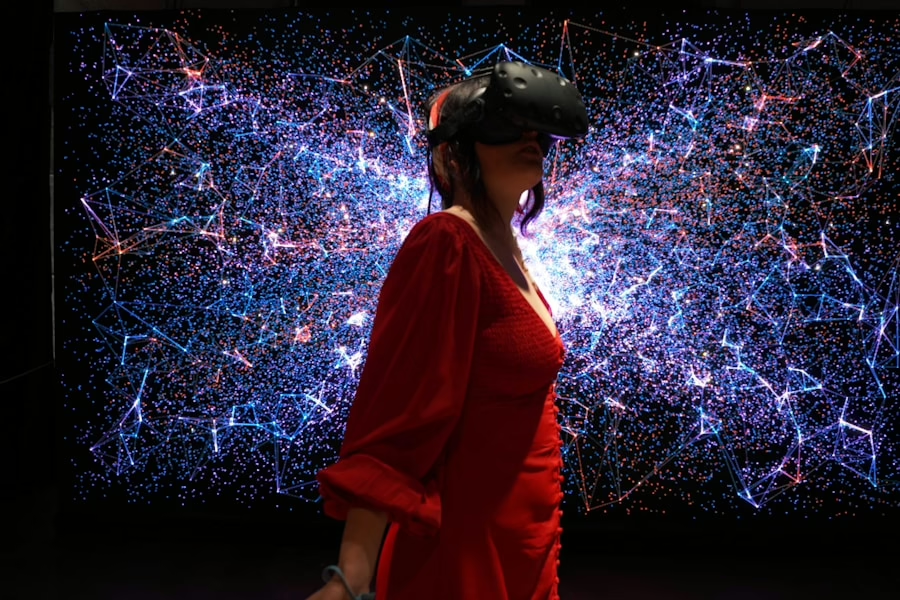In the rapidly evolving landscape of technology, emerging tech trends are reshaping industries in unprecedented ways. These trends encompass a wide array of innovations, including artificial intelligence (AI), the Internet of Things (IoT), blockchain technology, augmented reality (AR), virtual reality (VR), and the rollout of 5G networks. Each of these technologies is not only enhancing operational efficiencies but also redefining customer experiences and business models.
As organizations strive to remain competitive, understanding and integrating these technologies has become essential. The convergence of these technologies is creating a synergistic effect that amplifies their individual benefits. For instance, AI can analyze vast amounts of data generated by IoT devices, leading to more informed decision-making.
Similarly, blockchain can provide secure and transparent transactions that enhance trust in digital interactions. As these technologies continue to mature, their collective impact on industries will only intensify, paving the way for innovative solutions and new market opportunities.
Impact of Artificial Intelligence on Industries
Revolutionizing Healthcare
In healthcare, AI algorithms are being utilized to analyze medical images, predict patient outcomes, and personalize treatment plans. For example, companies like Zebra Medical Vision use AI to detect diseases from medical imaging with remarkable accuracy, significantly improving diagnostic processes and patient care.
Transforming the Financial Sector
In the financial sector, AI is revolutionizing how institutions assess risk and manage investments. Algorithms can analyze market trends and consumer behavior at lightning speed, enabling firms to make data-driven decisions that enhance profitability. Robo-advisors, powered by AI, are democratizing investment management by providing personalized financial advice to a broader audience at a fraction of traditional costs.
Fostering Greater Financial Inclusion
This shift not only improves efficiency but also fosters greater financial inclusion.
The Role of Internet of Things in Revolutionizing Industries
The Internet of Things (IoT) refers to the interconnected network of devices that communicate and exchange data over the internet. This technology is transforming industries by enabling real-time monitoring and automation of processes. In manufacturing, IoT sensors are used to track equipment performance and predict maintenance needs, thereby minimizing downtime and optimizing production efficiency.
For instance, General Electric employs IoT technology in its industrial machines to gather data that informs predictive maintenance strategies. In the retail sector, IoT is enhancing customer experiences through personalized interactions and inventory management. Smart shelves equipped with sensors can monitor stock levels and automatically reorder products when they run low.
Additionally, retailers can use data collected from IoT devices to analyze shopping patterns and tailor marketing strategies accordingly. This level of insight allows businesses to respond swiftly to consumer demands and improve overall operational efficiency.
Blockchain Technology and its Disruptive Potential
Blockchain technology is best known for its role in powering cryptocurrencies like Bitcoin; however, its potential extends far beyond digital currencies. At its core, blockchain is a decentralized ledger that ensures transparency and security in transactions. This characteristic makes it particularly valuable in industries such as supply chain management, where tracking the provenance of goods is crucial.
Companies like IBM are leveraging blockchain to create transparent supply chains that enhance trust among stakeholders. Moreover, blockchain’s ability to facilitate smart contracts—self-executing contracts with the terms directly written into code—has significant implications for various sectors. In real estate, for example, smart contracts can streamline property transactions by automating processes such as title transfers and escrow services. This not only reduces the need for intermediaries but also minimizes the risk of fraud, thereby increasing efficiency and reducing costs.
Augmented Reality and Virtual Reality: Transforming Industries
Augmented reality (AR) and virtual reality (VR) are immersive technologies that are redefining how industries engage with customers and train employees. In the retail sector, AR applications allow customers to visualize products in their own environments before making a purchase. For instance, IKEA’s AR app enables users to see how furniture would look in their homes, enhancing the shopping experience and reducing return rates.
In training and education, VR is being utilized to create realistic simulations that prepare employees for real-world scenarios without the associated risks. Industries such as aviation and healthcare have adopted VR for training purposes; pilots can practice flying in simulated environments while medical professionals can hone their skills through virtual surgeries. This hands-on approach not only improves learning outcomes but also enhances safety in high-stakes environments.
The Rise of 5G Technology and its Implications for Industries
The advent of 5G technology marks a significant leap forward in mobile connectivity, offering faster speeds, lower latency, and greater capacity than its predecessors. This enhanced connectivity has profound implications for various industries, particularly those reliant on real-time data transmission. In healthcare, for example, 5G enables telemedicine services that allow doctors to conduct remote consultations with minimal delay, improving access to care for patients in remote areas.
Moreover, 5G technology is set to accelerate the adoption of IoT devices across industries by providing the necessary bandwidth for seamless communication between devices. Smart cities are emerging as a prime example of this potential; with 5G infrastructure in place, cities can implement smart traffic management systems that reduce congestion and improve public safety. As 5G continues to roll out globally, its impact on industries will be profound, driving innovation and efficiency.
Future Outlook: How Emerging Tech Trends will Continue to Change the Game
As we look ahead, it is clear that emerging tech trends will continue to reshape industries in ways we have yet to fully comprehend. The integration of AI with other technologies like IoT and blockchain will lead to more sophisticated solutions that address complex challenges across sectors. For instance, combining AI with blockchain could enhance data security while enabling more efficient data sharing among organizations.
Furthermore, as consumer expectations evolve alongside technological advancements, businesses will need to adapt quickly to remain relevant. The rise of personalized experiences driven by AR and AI will become increasingly important as companies strive to meet the demands of a more discerning customer base. Ultimately, the future landscape will be characterized by a dynamic interplay between emerging technologies and traditional business practices, fostering an environment ripe for innovation and growth.



